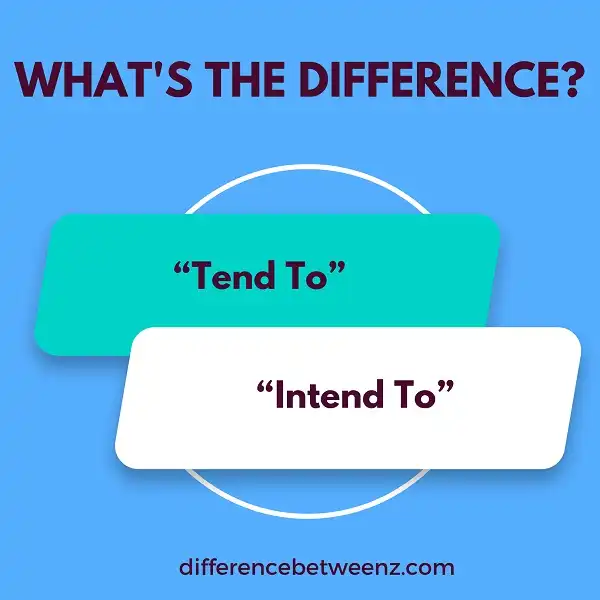When you are writing, do you know the difference between “tend to” and “intend to”? Many people use these words interchangeably, but there is a big difference between them. In this blog post, we will take a look at the differences between these two phrases and when to use each one. Stay tuned!
What is “Tend To”?
“Tend To” is a phrase that is often used in English, but its meaning is not always clear. In general, “tend to” indicates that something is likely to happen or that someone is likely to do something. For example, if you say “I tend to get anxious in new situations,” you are saying that it is common for you to feel anxious when you are in a new situation.
“Tend To” can also be used to give advice. For example, if you say “you tend to forget people’s names, so make sure to introduce yourself right away,” you are giving the person advice on how to avoid forgetting names. “Tend To” is a versatile phrase that can be used in many different situations. Keep in mind, however, that it is often used informally and should be avoided in formal writing.
What is “Intend To”?
“Intend To” is a phrase that is often used in business settings, and it indicates that someone has a specific goal or plan. For example, if a company “intends to” sell a product, it means that they have a goal of selling that product. “Intend to” can also be used in other contexts, such as when someone “intends to” vote for a particular candidate. In this case, it means that the person has a goal of voting for that candidate. “Intend to” is a phrase that is often used to indicate future plans or goals, and it can be used in both personal and professional contexts.
Differences between “Tend To” and “Intend To”
- “Tend To” and “Intend To” are two English phrases with very similar meanings. Both phrases indicate that a person is likely to do something in the future. However, there are some subtle differences in how these phrases are used.
- “Tend To” is more often used to describe habits or general tendencies, while “Intend To” implies that a person has made a specific decision to do something. For example, you might say “I tend to forget my umbrella when it rains” to describe your general tendency to forget things.
- However, if you say “I intend to buy an umbrella before the rain starts,” you are making a specific plan to take action. In this way, “Intend To” emphasizes the decision-making process, while “Tend To” simply describes a likely outcome. Understanding the subtle differences between these two phrases can help you use them more effectively in your own writing.
Conclusion
In order to avoid any confusion, it’s important to be aware of the differences between these two phrases. “Tend To” is typically used when describing something that is likely to happen, while “intend to” is more often used when talking about a specific goal or plan. When writing or speaking in English, using the phrase “I intend to” will make your intentions clear and leave no room for misinterpretation. Thanks for reading!


